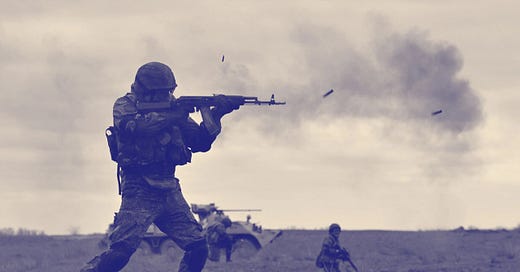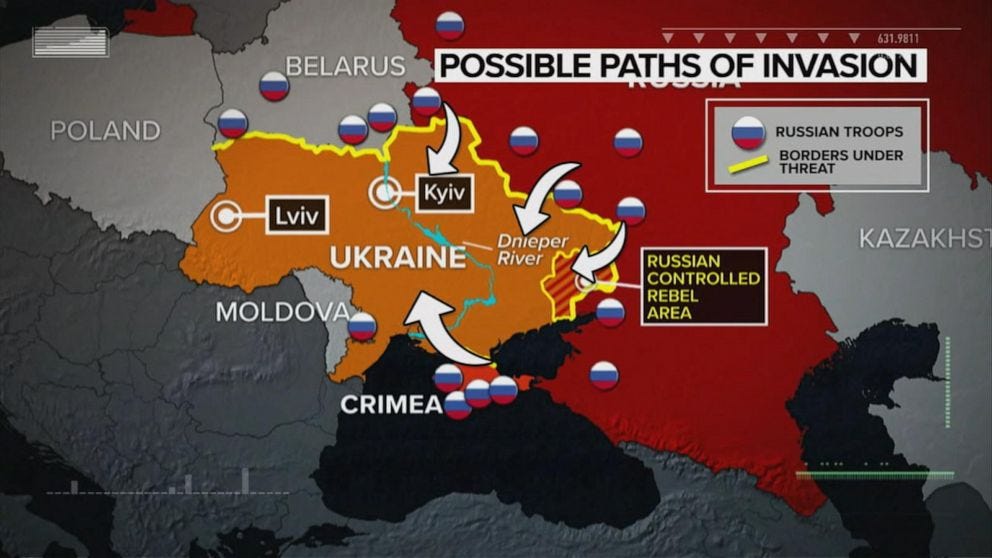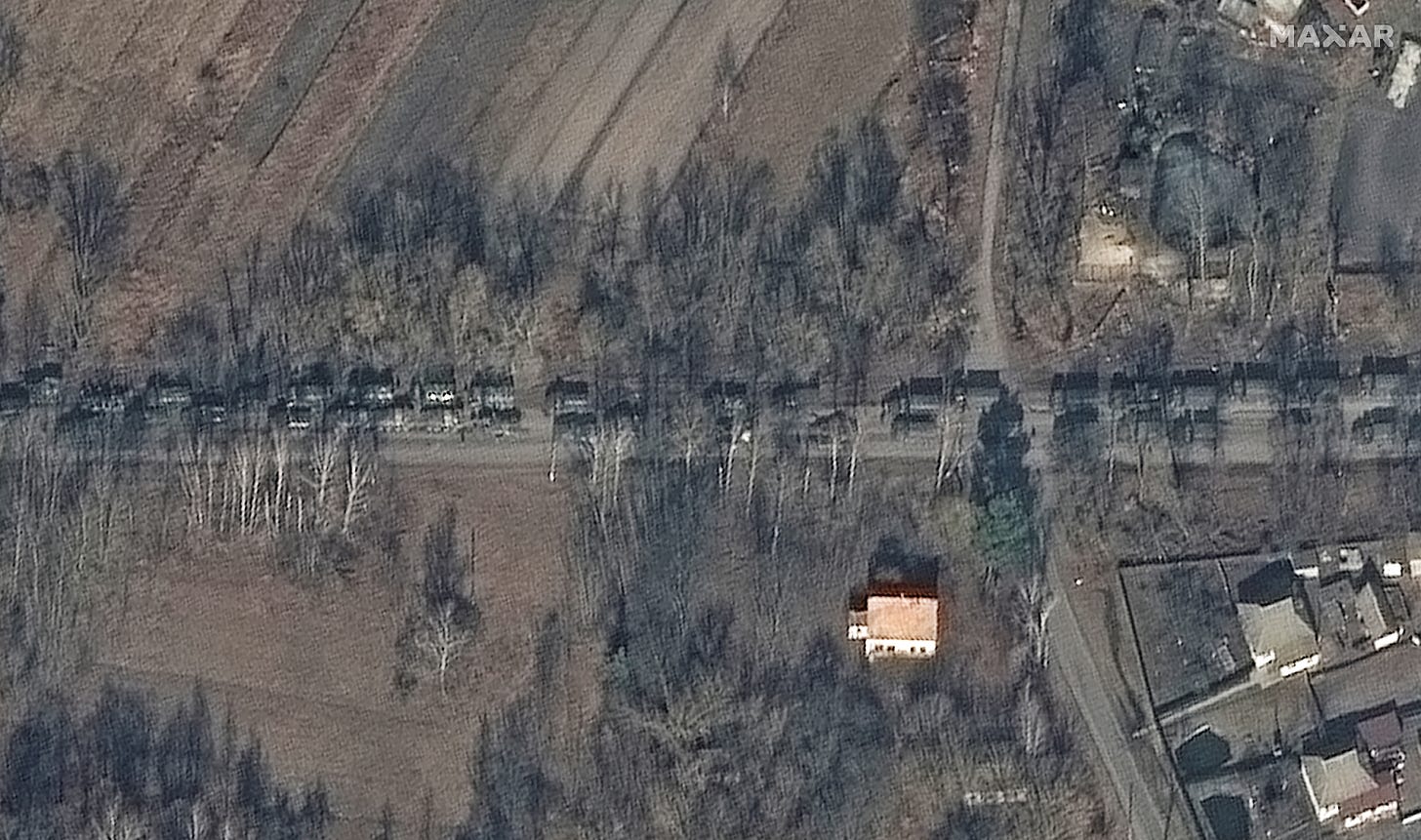It was a Saturday night on November 13, 2021. I was in my college dorm not doing anything particularly interesting, because while classes were back, we were still required to wear masks, and I suspect that the lack of full-face communication was making people less social. I decided to start doom scrolling because I didn’t have much else to do about ongoing wars in the middle-east and Africa, until I came across two news stories that made me want to read beyond the headlines. The first was about a migrant crisis on the Poland-Belarus border, where Alexander Lukashenko, with all his pettiness was deciding to punish the E.U. in response to their sanctions by facilitating the travel of thousands of mostly middle-eastern migrants into his country and then forcing them at gunpoint to cross the border with Poland. The Poles obviously weren’t having it, so they started forcing the migrants back into Belarus, resulting in a situation where thousands of people were yo-yoing between the two countries in encampments on the border in the freezing cold.
The second story was from Reuters, saying that over 100,000 Russian troops were amassing near the Ukrainian border. I didn’t know what to make of it. Clearly if you’re amassing that many troops, you’re preparing for some kind of war, but that force seemed a bit too small to conquer a country of over 44 million people. What would Putin have to gain from such a thing? I sent the stories to a few friends and family to see what they thought about it. They seemed worried, but didn’t have any opinions, because we didn’t think something like this would actually happen in the 21st century. Given the humiliating Afghanistan withdrawal and the Iraq War fought for dubious reasons that led to the rise of ISIS, I was somewhat sympathetic to the talking points that NATO expansion was inherently aggressive and that American warships in the Black Sea were provoking Russia.
As the weeks went on, and as I was grinding on my final exams, I would see once a week more and more reporting on the potential crisis in Ukraine, with U.S. intelligence showing satellite images of even more troops, with diplomats vaguely threatening “severe consequences” should Russia invade. But still, few people at my school and on social media were talking about it. I think a lot of it had to do with the fact that this wasn’t an issue that could be easily weaponized by either side of the culture war, the way the Canadian truck drivers protesting against COVID restrictions was. This continued through the new year, though by late January it became undeniable that something was going to happen. Would Putin actually decide to invade the country? Or would he use the threat of invasion to get political concessions such as a completely demilitarized Ukraine?
Embarrassment and shame over how the United States conducted itself during the War on Terror quickly became a weaponized “whataboutisms” that provided no real insight on how to actually conduct foreign policy. My frustration could be summed up in a youtube comment I read on a Sam Seder video (I took a screenshot at the time and shared it to everyone but don’t remember the original title) here:
I think this issue really highlights a real weakness in the Progressive movements foreign policy platform. Being antiwar is a core objective for Progressives and this has been a fairly easy position to hold for the US back during the Unipolar days of the 90's-mid 2010's.
But we have slid out of that and are on the edge of returning to a multipolar world, if we aren't there already.
This means that wars between states are likely to increase in the future as US strength and the weakness of the international institutions the US has built up have crumbled (the pointless adventurism of Iraq and Afghanistan play a HUGE factor in this slide). US strength isn't the end all be all deterrent anymore and other great (or aspiring great) powers have noticed this.
The humanitarian crisis of the Ukraine annexation has been obvious and will only get worse if Russia annexes more. The destabilizing effect on Europe alone could be catastrophic. But the Biden administration isn't just having to thread the needle on this one crisis. A lot of other countries are eyeing how this will be handled.
China and the issue of Taiwan is the most obvious but a lot of other countries have border disputes that could easily lead to war if the response to this is botched in a way that green lights annexation. Egypt and Ethiopia, Azerbaijan and Armenia, any combination of East China Sea Island disputes, India and Pakistan, Israel and Palestine, Israel and Syria.
As for Russia, they've made clear that they have several foreign policy concerns tied to Ukraine. Access to warm water ports, restoring their sphere of influence in Eastern Europe (while keeping NATO out), and achieving these to secure economic and military stability/ ascendancy before their demographic issues catch up with them are all in play.
And this is where the progressive issue emerges. Opposing imperialism has been easy. The US being the global hegemon meant that when it reared imperialist policies, it was generally the prime source of disruption and we could oppose it at home. But now we are in a multipolar situation and just sitting back at home isn't a sufficient means of preventing conflict or humanitarian crises.
We need to find a way to address the dangers of other powers with imperial aspirations while also mitigating conflict and preventing war as much as possible (and not pointlessly entering them ourselves). To be frank, we haven't had enough progressives really thinking on these problems, which is why grifters like Tulsi Gabbard could rise to prominence by offering opinions on Iraq that should have been obvious to the public almost a decade before she started voicing them and act like she's some foreign policy genius. This discussion is dominated by militarists, realists, and neoliberals. Sure sanctions are objectively better than direct war, but they can still cause a lot of harm in a way I'm not sure many progressives would support. So if sanctions are out, we need to find another solution.
Very rarely does a youtube comment actually wield some insight, but it perfectly captured my frustration with the antiwar left who seemed stuck in the mindset that the world hadn’t changed from the early 2000s, that America was still the number one threat to world peace, refusing to recognize the very real militaristic ambitions of other countries like Russia, Iran, and China. Then there was the isolationist right, who just hated Biden, wanted to see him fail, and kept repeating that Trump would have done better. I didn't take their arguments seriously.
As February went on, I saw that Russia began claiming to pull back troops, only for the U.S. and NATO to say that the troops were either still there. Even Zelenskyy was telling his people not to panic. I saw more news of heavy weapons being shipped to the border, the White House warning of cyber attacks and false flag attacks by Russia in order to give pretext to the invasion (very specific claims that seemed to be credible). Then we saw the maps like this one that showed the invasion routes:
What finally convinced me that Putin was going to invade was seeing reports of field hospitals being built, with massive shipments of blood supplies to the border. If you’re putting that much effort into the invasion, it’s because you’re serious about it. Then around February 21-22, Putin recognized the independence of Donetsk and Luhansk, and slowly started moving troops into the country. Was this all he was going to do? Just take over the Donbas? No one knew, because Putin had built up the reputation of being an unpredictable supervillain. Everyone was just so surprised by the fact that war had returned to Europe. Then around 10-11 PM on Wednesday night on February 23, I was watching the news, only to open the New York Times app on my phone and see the following banner:
Now everyone at my university was talking about it. There was a strong sense of confusion as to why Putin would do such a thing. That wars over territory were a thing of the past. “Wow, I really thought in the 1990s that we were done with war, it’s a shame” my psychopharmacology professor told the class. We had a midterm that week and there were people trying to get out of it because of the “devastating mental health effects” the war was having on them, but wasn’t buying it.
The CIA believed that Ukraine would only last about four days, and that Zelenskyy would have to flee, but we all know how that went down. After about a week, I realized that Russia hadn’t taken a single major city yet. All the maps of Russian troop movements were maps of Russian military penetration into Ukraine, but they were not maps of actual occupation and administration. It soon became clear how much of a disaster the “special military operation” was for Russia, as the famous 40 mile long convoy of tanks had to turn around and refuel in Belarus.
There was a brief moment of unity, with all of the western countries uniting in sanctioning Russia. The global south mostly didn’t sanction Russia, but 143 countries openly condemned the invasion. The Finns and the Swedes joined NATO, and when the Ukrainians pushed the Russians outside of Kiev, Biden and the European leaders began arming Ukraine to the teeth. Following the news day to day there were feelings of enragement we all felt upon learning about the Bucha massacre, feelings of horror over siege of Mariupol, and feelings of euphoria over the counteroffensive that took back Kherson and Kharkiv. But over time, the sanctions proved to be ineffective, much of the unity against Russia proved to be hysteria against Russian artists, athletes, and regular Russian immigrants in the west who couldn’t receive money from Western Union, and the heroic image of Zelenskyy began to wane as his face looked older every day.
The Russo-Ukrainian War confirmed the end of what Eric Weinstein calls “The Long Nap.” The extraordinarily lucky period of time from the end of World War II up until around 2020 with the COVID-19 pandemic that saw an unprecedented global expansion of peace, prosperity and technology despite the very real risks of nuclear war. All the talk about deterrence from conservative politicians and think tanks started to sound more true, though I didn’t forget about their hubris regarding the Middle East. NATO expansion wasn’t the reason Putin chose to invade. Russia has a long history of being a nation with a providential view of itself, entitled to be a great power and to control the affairs of the surrounding countries. NATO expansion to include the former Eastern Bloc countries was specifically to avoid being controlled by Russia. And while the western world doesn’t have clean hands in promoting democracy worldwide, I believe we do have a duty to make sure that dictators can’t aggressively change the borders as was the case before World War II.
Why couldn’t Putin just let it go? Why did this old boomer have to start a war over something that happened before most of the soldiers were even born? Watching Putin give speeches and interviews in Russian palaces while young men my age are dying in the trenches became too depressing to think about, especially as the Battle of Bakhmut that Russia ‘won’ raged on. This was the first major war I could think about where I realized that I would be old enough to fight in it if I lived in either country, which was unsettling. At least with the ongoing Israel-Hamas war, I can understand why both sides are fighting… why both sides view the broader conflict as existential, but in Russia-Ukraine, the war is just a total waste of young life in one of the fastest aging regions of the world.
The arc of history doesn’t bend towards justice… it goes in all sorts of crazy directions and the war in Ukraine was a big wake up call for me. Russia cannot conquer the entire country (lest we completely withdraw our support), but Ukraine will not recapture its eastern territories, and will have to deal with poverty, destruction, and demographic collapse when this war is over. World War II is remembered as a civilizational triumph against barbarism. But World War I? Americans hardly care about it, and when Europeans remember it, it’s remembered as nothing but a tragedy, much as the current war has turned out to be.






